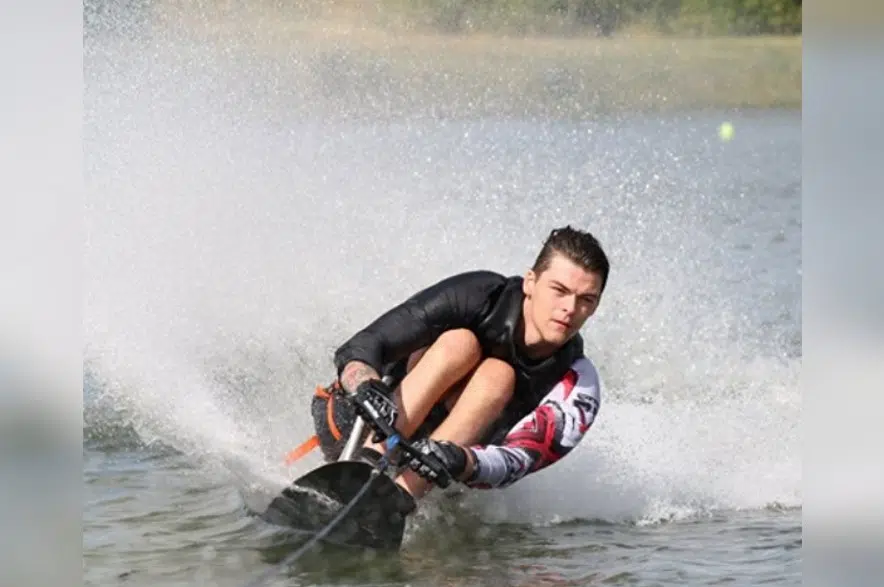By Maury Wrubleski
Jacob Wassermann has turned his athletic prowess to a new sport, and it should come as no surprise that his determination has already made him shine.
Wassermann won his first gold medal in the fledgling sport of competitive indoor rowing, on his way to a place in the outdoor rowing world.
This past weekend, the 2023 world rowing championships were held in Mississauga, Ont. Wassermann clocked in at nine minutes 38.3 second in the men’s PR1 Category competition to finish ahead of his nearest rival, Jan Folga Ieszek, from Poland.
Wassermann completed the feat at his home rowing club in Saskatoon on a specialized rowing machine hooked to online tracking specially designed for the competition. He was just introduced to the sport in October of last year, and he’s thrown himself into the new venture wholeheartedly.
“I actually ran into one of my current teammates in a grocery store, and he said it was a new thing that he was trying out,” Wassermann recalled. “I thought that sounded interesting and I’d love to give it a try, and it started from there.”
Wassermann is a former Humboldt Broncos goalie who was left a paraplegic as a result of the Broncos bus crash in April of 2018.
Wassermann turned to the sport of adaptive water skiing and worked hard to master its demands, excelling in competition throughout the past few years. With the cold Saskatchewan winters, Wassermann and his rowing teammates are confined to indoor machines, but his goal, once the waters open, is to get out and challenge himself and others in the outdoor sport.
“I’ve really started to enjoy rowing and I plan to stick with it once we get on the water,” he said. “It’s an Olympic sport, so there’s more opportunity with it for sure, and there’s more exposure and supports connected to the rowing world around here just in the short time I’ve been in the sport.”
Wassermann competes on a static rowing machine, the kind that are commonly found in most gyms. For adaptive rowing, some machines have a static seat that allows their use in competition.
The participants are placed in classes according to their relative mobility and facility with the machines. He works with another adaptive athlete and a dedicated corps of rowers who offer their support.
Competitive indoor rowing is an offshoot of its outdoor counterpart. Athletes in Nordic climates can continue to train throughout the year, and Wassermann got into the fray during that season. With some athletes competing virtually, Wassermann did not have to make the trek to Ontario to face his counterpart from halfway around the world.
“It was my first taste of competition in rowing, so it was exciting for sure,” he said.
The virtual format didn’t detract from the drama of the race, as online viewers could watch graphics as the “boats” pulled ahead or fell behind with the rowers’ efforts. Wassermann admitted that added to the motivation.
“Even on my screen, I could see how close I was to the other competitors,” he said. “It was a cool setup.
“I had a race plan set of how I was going to go about it, and I tried to just stick to that. I tried not to watch the screen too much, but it’s hard when it’s right there. You push a little harder to try to beat those people who are right there with you.”
His hope is to transition to the outdoor sport by the end of April in the icy Saskatchewan water. Wassermann hasn’t hung up the water ski for good, either; he plans to continue with adaptive water skiing as a pastime. But his newfound passion for rowing has him dreaming of international competition.











